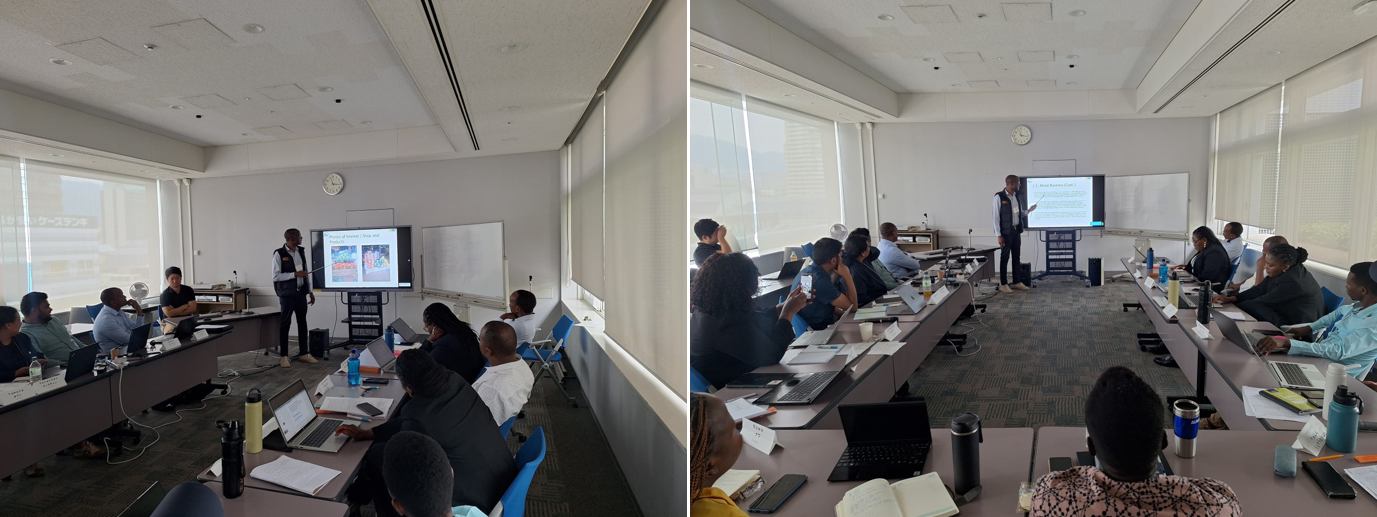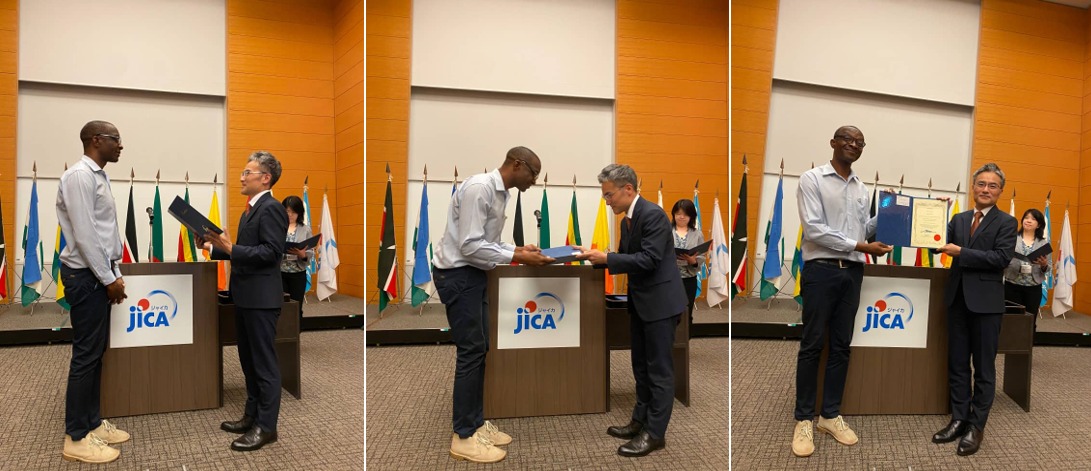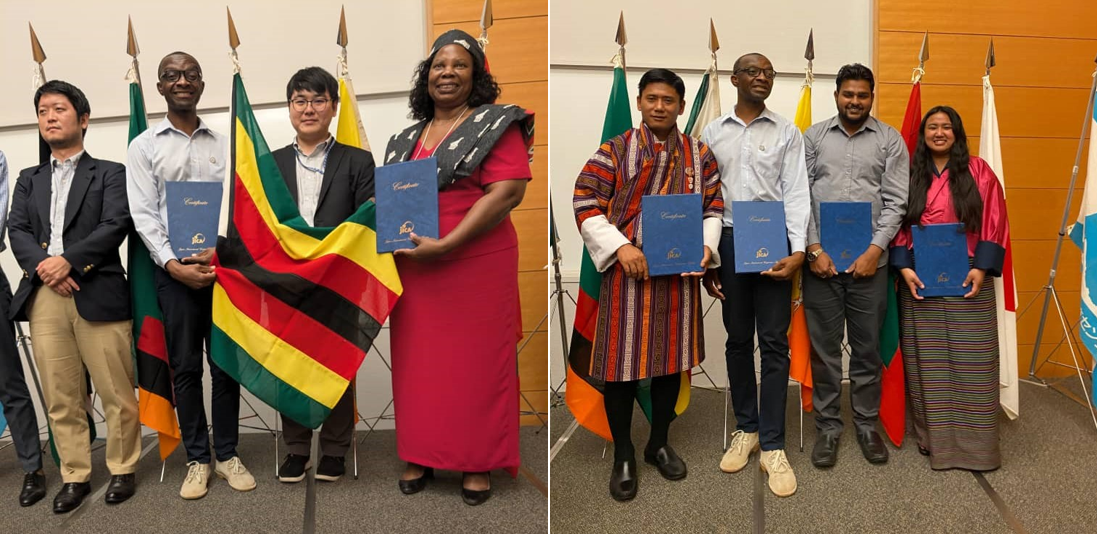The Unforgettable Japanese Experience by Gerald Masikati
2025.08.29
The Unforgettable Japanese Experience
by Gerald Masikati
Horticulture Specialist at Agricultural and Rural Development Advisory Services (ARDAS)
About the Japanese experience….
I participated in the Knowledge Co-Creation Programme (KCCP) course on Market-Oriented Agriculture Promotion - SHEP Approach - for Africa from May 28 to June 14, 2025, in Kobe, Japan. This experience, inclusive of the Smallholder Empowerment and Promotion (SHEP) training was inspiring, transformative, empowering, and practical. I was exposed to advanced agricultural systems and views of how a market-oriented approach can be effectively implemented. My key takeaways from the overall experience are highlighted below.
Field Visits
One of the highlights of the training was the field visits. Farm visits and cooperative tours showed how even small farmers could produce for high value markets through proper organisation, planning, and quality control. Seeing advanced greenhouses, effective market systems and farmer owned supply chains was eye opening.
Learning Environment
The training was well structured, combining interactive lectures with hands on experience. Trainers were experienced and used real life examples to relate Global Good Agricultural Practices (GAP) and SHEP principles to smallholder settings.
Teamwork and networking
Working with fellow participants from other countries created strong professional bonds.
Cultural Exposure
The Japanese people’s discipline, punctuality, work ethics and cleanliness were striking. Interactions with Japanese farmers, officials, and institutions reflected professionalism, humility, and a deep respect for agriculture.
What I enjoyed the most about the course and about Japan….
There is so much that I liked about the course and about Japan, but I will briefly sum up the likes that take the cup below!
About the course
- Practical market orientation: I enjoyed learning how farmers are using real market data to make production decisions. The focus on "Grow to Sell" was very empowering.
- Interactive Learning: The mix of lectures, field visits, and group discussions made the course engaging and applicable.
- Exposure to Real Systems: Visiting Japanese cooperatives and markets showed how structured and efficient their agricultural systems are.
About Japan
- Cultural richness: Experiencing Japanese hospitality, traditional food and beautiful gardens added great value to the visit.
- Discipline and cleanliness: The orderliness, punctuality and respect shown in daily life were inspiring.
Lessons learned from the KCCP course in Japan….
I learned a lot from the course, including the following:
- Market first mindset: Farmers must identify and understand market needs before production.
- Importance of record keeping: Simple farm records help track costs, yield, and profits, essential for business minded farming.
- Cultural discipline: Japanese culture of order, cleanliness and time management can inspire agricultural professionalism.
- Value addition and quality control: Grading, packaging, and adhering to safety standards improve value and trust with buyers.
- Strengths of farmer organisations: Japan Agricultural Cooperatives (JA Hyogo-Rokko) showed the power of group marketing, shared resources and strong linkages with markets and banks.
- Role of extensionists and the private sector: Continuous support from extension officers and private partners improves farmer knowledge and access to inputs and markets.
Using what I learnt form the course for my work….
Having gained so much knowledge from completing the course, I am excited to apply it to my work as follows:
- Apply in Extension work: Use participatory training methods, visual tools, and field demonstrations to pass on SHEP principles to farming communities.
- Promote Gender Inclusion: Ensure both men and women are involved in training, planning and decision making at household and group levels.
- Promote market led production planning: Support farmers in selecting crops based on market demand, planning their production calendars accordingly and avoiding overproduction.
Signing out and recommendation about JICA programmes to other people….
I would recommend others to partake of the programmes that JICA offers, should the opportunity to apply arise. With regards to the SHEP Approach training course in particular, I would recommend the training for the following reasons:
- It equips participants with practical tools for planning, marketing, and farmer empowerment.
- It changes your mindset from just producing crops to understanding the market first.
- The exposure to Japan’s agricultural systems and disciplined culture is both inspiring and educational.
I am grateful to JICA for this auspicious opportunity to learn, it surely allowed me to grow as an individual and in my profession. I would welcome an opportunity to train in Japan again any time!

Presenting my country report

Attending an educative seminar trip at Japan Agricultural Cooperatives (JA Hyogo-Rokko)
to learn and observe on the distribution of agricultural produce and parties involved in Japan

Graduation

Closing ceremony and graduation with fellow participants

Visiting the Kinkakuji Temple (Golden Pavilion)
to have an appreciation of Japanese culture and cuisine

Taking time to refresh

Visiting a shrine with my lecturers and fellow participants

Shopping at the Sannomiya shopping mall

The dancing team on the last day of the program

End of mission and going back to motherland, Zimbabwe
scroll